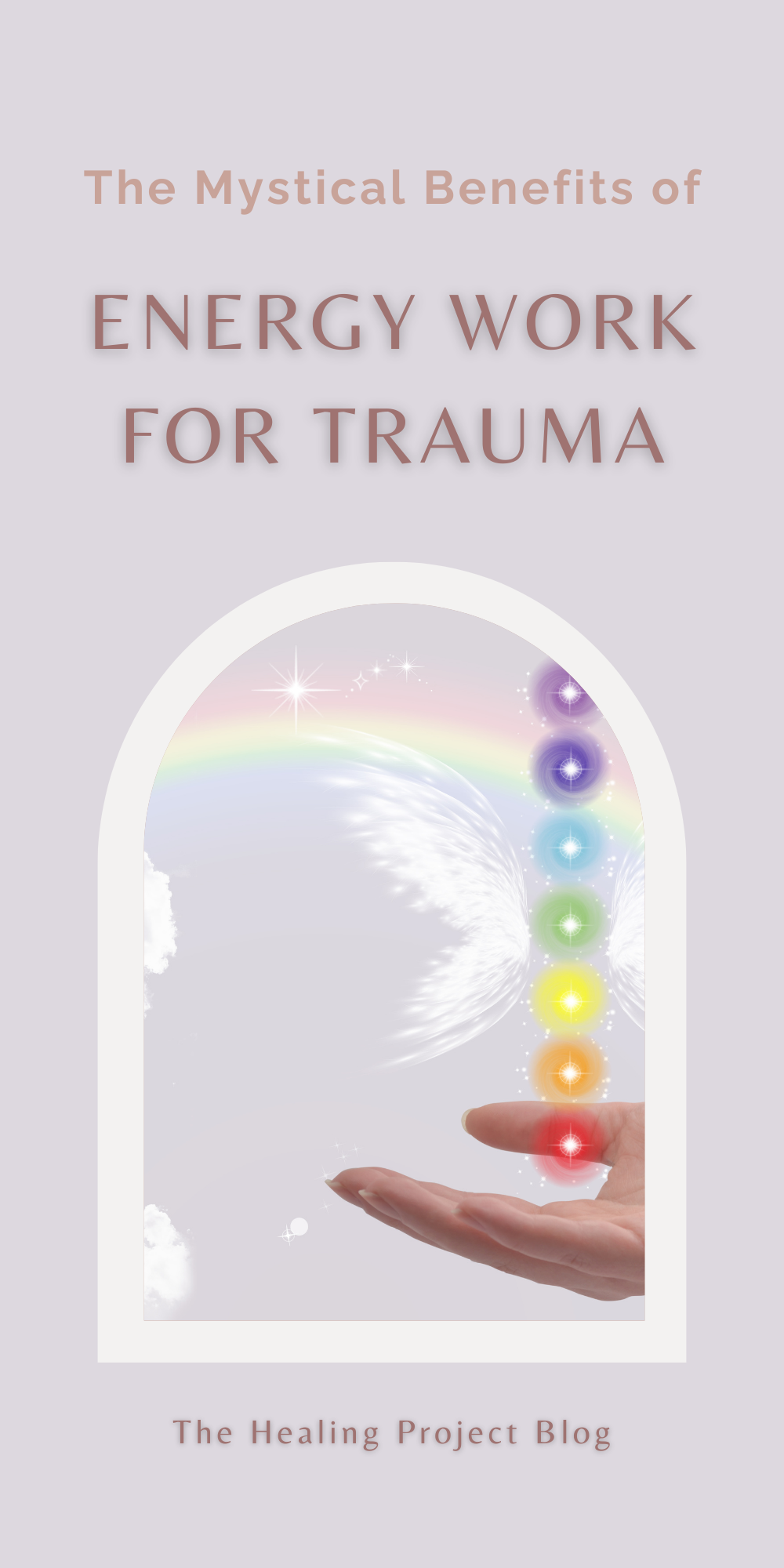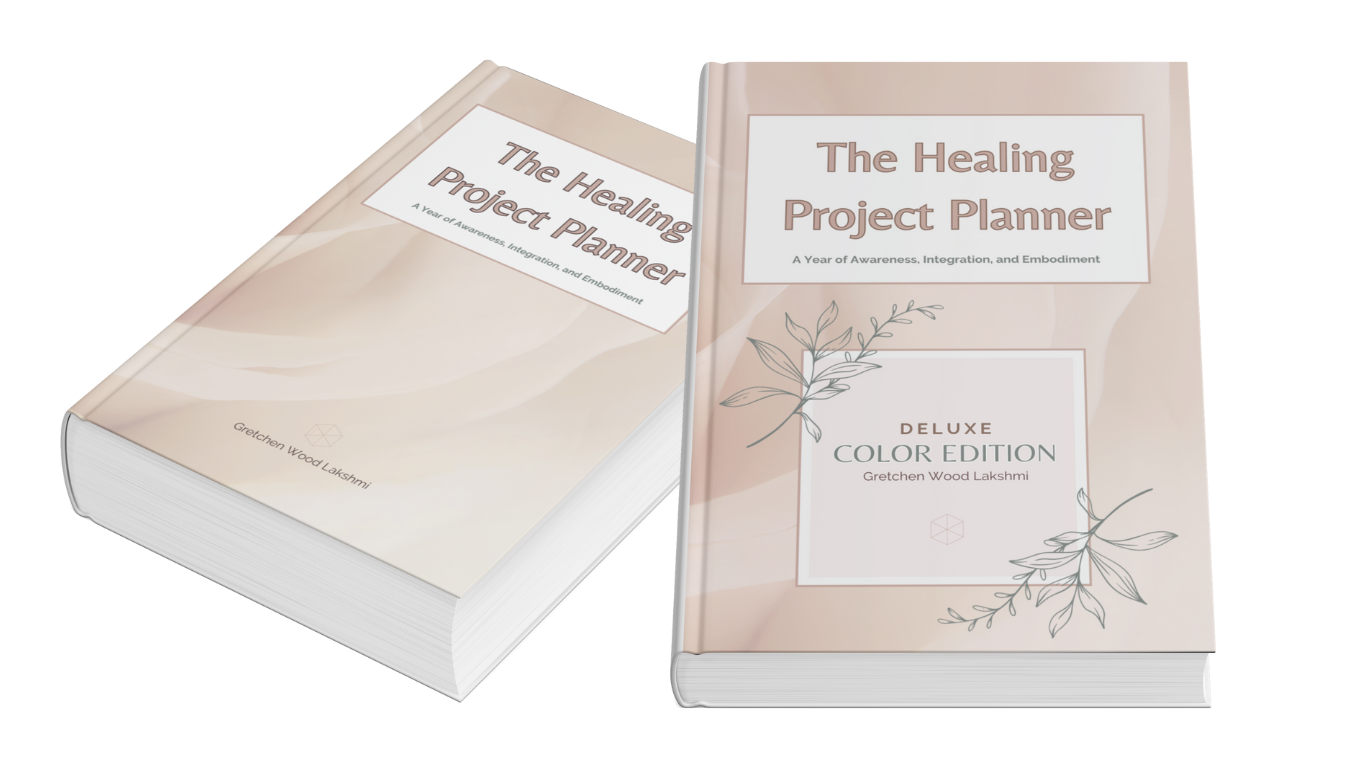The Mystical Benefits of Energy Work for Trauma
Healing from trauma and abuse can be a complicated journey, so it can help to consider multiple approaches to address the deep-seated impacts of your experiences. Traditional talk therapy is definitely a cornerstone of trauma recovery, but adding in practices like Reiki and different forms of energy work can create a more holistic path to healing.
Today we're going to explore how Reiki and energy healing can complement talk therapy and offer some unique and even mystical benefits for those recovering from trauma and abuse. We'll also discuss some of the studies that back up the results.

Trauma + Abuse
Emotional trauma is something that happens when you experience a deeply distressing or disturbing event, that can have long-lasting effects on your emotional and physical well-being. Survivors of abuse, whether emotional, physical, or sexual, often face a variety of challenges, including anxiety, depression, PTSD, and a distorted sense of self. The effects can flow into any and every aspect of your life, making it difficult to recover.
Reiki + Energy Healing
Reiki is a type of energy healing that originated in Japan and is based on the idea that a greater universal life force energy flows through all living beings. Practitioners of Reiki have received training and energetic attunements that allow them to channel this energy to promote healing, balance, and relaxation.
Energy work can be practiced through a variety of methods, including Eden Energy Medicine, acupuncture, healing touch, tai-chi and qigong, yoga, gentle movement, and more, all aimed at restoring the natural flow of energy within the body.

Mystical Aspects of Reiki
Reiki can be described as a mystical practice because of its connection with universal life force energy. Here are some of the esoteric concepts associated with Reiki:
- Energy Channels (Meridians/Nadis): Reiki teachings suggest that energy flows through channels in the body, similar to the meridians in traditional Chinese medicine and nadis in the yogic tradition. Blockages in the channels can be connected to physical and emotional ailments.
- Aura Cleansing: Reiki can be used to cleanse and balance the aura, the energy field that surrounds the body. By clearing unwanted energy, Reiki can help restore harmony and vitality.
- Chakra Balancing: The practice involves balancing the seven main chakras, or energy centers, in the body. Each chakra corresponds to different aspects of physical and emotional well-being, and balancing them promotes overall health.
- Universal Life Force Energy: Reiki practitioners tap into a universal life force energy that permeates the universe. This energy is believed to have an innate intelligence that guides it to where it is needed most in the body.
Learn more about energy work with my quick-reference Chakra Info Sheets.
Limitations of Talk Therapy
Talk therapies like cognitive-behavioral therapy (CBT) and psychotherapy can be life-changing and valuable tools for processing trauma. Unfortunately, talk therapies can also be limited because their main function is to engage the conscious mind and verbal expression.
While valuable in their own right, these therapies can fall short when it comes to addressing the non-verbal, somatic aspects of trauma. Survivors might find it difficult to articulate their experiences or access deeply buried emotions through words alone, so supplemental forms of support like energy work can help fill in the gaps.

Energy Healing for Trauma
Reiki and energy work can address the energies of trauma that disrupt the natural flow of energy in the body. This can help release stored trauma, promote relaxation, and reduce stress.
For trauma survivors, this can create a deep sense of relief and allow you to open up to deeper levels of emotional healing. Reiki sessions involve gentle touch, hovering hands, or even long-distance healing, creating a safe and nurturing feeling.
Beyond the mystical properties of Reiki and energy work, there are thousands of scientific studies, like this one, that show there are significant benefits to both physical and emotional healing when Reiki and energy work practices are introduced.
Energy Work for Abuse Survivors
Abuse survivors often carry emotional scars that might not be accessible through traditional therapy. Reiki provides a non-invasive, gentle approach to healing these wounds.
By addressing the energetic imbalances caused by abuse, energy work helps survivors reconnect with their bodies and emotions in a safe way. So many of my clients have experienced personal transformation through energy work, from increased emotional resilience to greater sense of self-worth and self-awareness.

Tips to Get Started
For those interested in exploring Reiki and energy healing, here are some practical steps:
- Find a Qualified Practitioner: Look for certified Reiki practitioners or energy healers with experience in trauma recovery. Personal referrals and reviews can be helpful.
- What to Expect in a Session:
- In-person Reiki sessions typically last about an hour, during which the practitioner will use gentle touch or hover their hands over the body. Clients remain fully clothed and may experience sensations of warmth, tingling, or deep relaxation.
- Reiki may also be offered long-distance. Some practitioners, like myself, offer reiki over phone call and Zoom and will talk a client through a long-distance session. Others may offer reiki long-distance while they are alone and then send a report to the client about it later. The beautiful thing about reiki and energy work is that the healing benefits can be felt regardless of the distance.
- Self-Care Techniques: Simple practices like deep breathing, visualization, and self-Reiki (placing hands on oneself) can be incorporated into daily routines to maintain energetic balance.

1:1 Energy Healing Sessions
For a more personalized approach to your healing, you might want to consider scheduling a one-to-one session with an energetic intuitive with multiple energy work trainings and certifications who specializes in healing trauma. These sessions are designed to address your specific needs and help you on your journey to recovery. During these sessions, you’ll experience tailored energy healing practices that support your emotional and physical well-being.
Book a Private Energy Work + Reading Appointment and get started with energy healing right now.
Reiki and energy healing offer valuable tools for anyone recovering from emotional trauma and abuse, providing a holistic approach that complements traditional talk therapy. By addressing both the mental and energetic aspects of trauma, survivors can achieve deeper healing and greater emotional resilience. If you’re on a journey of recovery, consider adding these practices into your healing process for a more complete and holistic approach to your well-being.
Wishing you so much healing,
Gretchen
SOMATIC TRAUMA SPECIALIST + ENERGETIC INTUITIVE

SHARE ON PINTEREST







